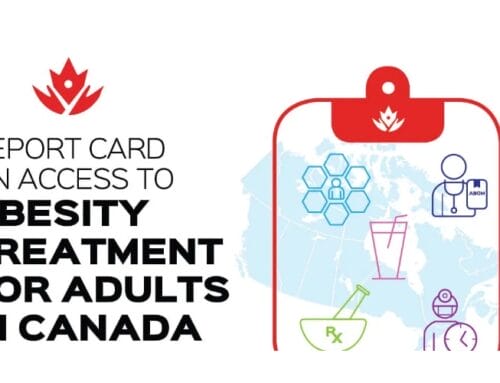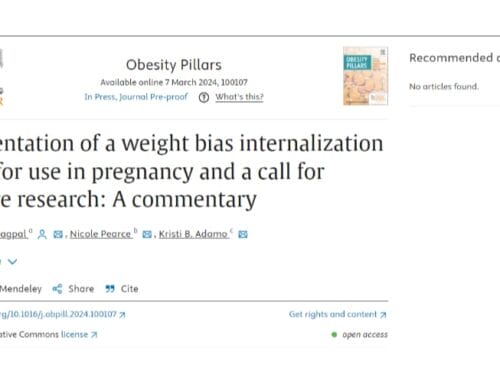by Kelly Moen
Throughout my life it was always there, I just never knew what to call it. I could feel it, I could see it in the faces and behaviours of others, yet at the same time it was slightly invisible. I knew it affected me – it hurt, it created depression and anxiety. It shamed me. It promoted people over me, made me feel alone and taught me the environment I lived in was not built for me. The looks, the whispers, and, at times, the outright cruel remarks ensured I knew my place in this world and that place was nowhere near the top.
It was only later in life that I began to understand the true nature of what I was experiencing.
Science improved, and my understanding of that science also improved; what seemed invisible was becoming visible. However, for it to become visible, I had to go back to school to study the psychology of obesity, motivation, self-regulation and mental health. After my first year back in the classroom I learned the ghost had a name and that it has a horribly cruel and vindictive, nature. This ghost that has haunted me in broad daylight is called weight bias. Although implicit, the discrimination one experiences from weight bias and social attitudes towards people with larger bodies is life threatening.
Through my studies I have learned that weight bias is much more than an implicit discrimination toward those who have obesity. The social attitude writes the narrative of one’s life. The popular narrative toward those who have obesity is that they are lazy, smelly slobs lacking in intelligence. And that’s just the inside voice. The outside-voice narrative continues to sing the same song over and over again: “If you would just move more and eat less, you would be just like us”.
Recent studies have shown that when a person is inundated with the negative messaging weight bias provides, it becomes harmful to one’s mental health. The overflow of negative messaging also promotes harmful behaviours. These behaviours can be harmful to one’s mental and biological health, and include:
- Disordered eating
- Body dysmorphia
- Depression
- Anxiety
- Suicidal ideation
- Isolation
- Low self esteem
- Weight gain
- Over eating
- Shame
- Promotion of secret eating
To promote better mental health in our nation we need to change the social constructs we have created regarding weight bias.
I wonder, if I were to ask you how you may have contributed to the promotion of weight bias, what would you say? If you have, how can you be the change we need to see?
Kelly Moen is a member of Obesity Canada’s Public Engagement Committee.
References
Alberga, A. S., Russell-Mayhew, S., von Ranson, K. M., & McLaren, L. (2016). Weight bias: a call to action. Journal of Eating Disorders, 4(1), 34.
Hogan, M., & C. Strasburger, V. (2008). Body image, eating disorders, and the media. Adolesc Med, 19, 521-546
Puhl, R., & Brownell, K. D. (2001). Bias, discrimination, and obesity. Obesity, 9(12), 788-805.
Tomiyama, A. J. (2014). Weight stigma is stressful. A review of evidence for the Cyclic Obesity/Weight-Based Stigma model. Appitie, 82, 8-15.
Harriger, J. A., & Thompson, J. K. (2012). Psychological consequences of obesity: weight bias and body image in overweight and obese youth.






